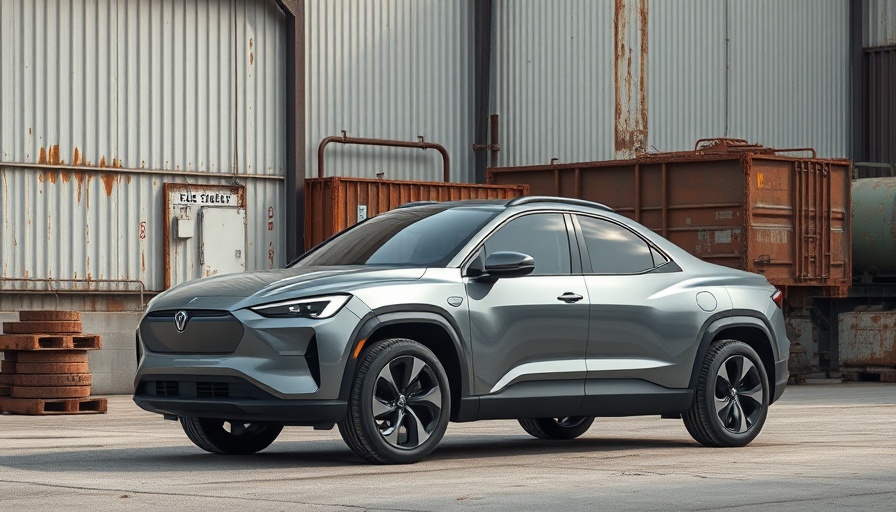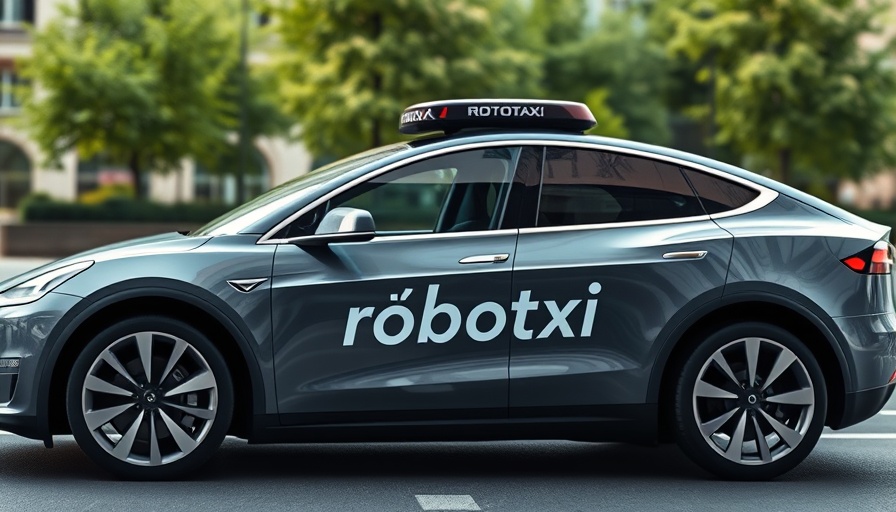
Slate Auto's Pricing Shift: A New Era for Affordable EVs?
Slate Auto, the electric vehicle startup making headlines for its ambitious promise to offer a pickup truck starting at under $20,000, faces a significant challenge after the Trump administration’s recent changes impacting the federal EV tax credit. The company, backed by notable investor Jeff Bezos, counted on the $7,500 credit to keep its pricing competitive. Following the passing of a tax cut bill that ends this credit in September, Slate had to adjust its promotional strategies, leaving potential buyers uncertain about the vehicle's future pricing.
Impact of Federal Policies on Electric Vehicle Pricing
Historically, government incentives like the federal EV tax credit have been critical in shaping the pricing landscape for electric vehicles. With the forthcoming termination of this incentive, Slate Auto must now develop pricing strategies that can attract customers without such financial support. Chief Commercial Officer Jeremy Snyder expressed concern during a recent event about the rising costs in the auto industry, emphasizing Slate's mission to provide affordability in electric vehicles. This transition points to broader implications for consumers and the competitive EV market.
Why Affordability Matters in the EV Market
The price of electric vehicles has been a barrier for many potential buyers, particularly for middle and upper-middle-class families who increasingly seek greener alternatives to traditional combustion engines. Slate Auto’s initial promise of a sub-$20,000 truck appealed greatly to those consumers looking for innovative, affordable, and environmentally friendly transportation options. Now, as the landscape shifts, it’s vital to discuss how these financial obstacles impact consumer behavior and the broader push for electric vehicles in America.
Expectations vs. Reality: What’s Next for Slate Auto?
As the company gears up for vehicle production slated for late 2026, uncertainty looms over how the cessation of the EV tax credit will shape consumer perception and sales strategies. While Slate aims to deliver a vehicle that incorporates customization and affordability, the company's adaptability will determine its long-term success. Factors like market competition, production costs, and alternative funding solutions will play a crucial role in shaping the future of Slate Auto and potentially revolutionizing the electric vehicle market.
Looking Ahead: The Future of EVs in America
The end of the federal EV tax credit could alter the buying landscape for electric vehicles significantly, but it might also spur innovative solutions within the industry. As Slate Auto and other manufacturers navigate these changes, the emphasis on technological advancements, customer education on electric vehicles, and sustainable practices will become more relevant. The future tech innovations depend on how well these companies adapt to external challenges while fostering trust and accessibility among potential buyers, transforming the standard of vehicle ownership.
 Add Row
Add Row  Add
Add 




 Add Row
Add Row  Add
Add 



Write A Comment